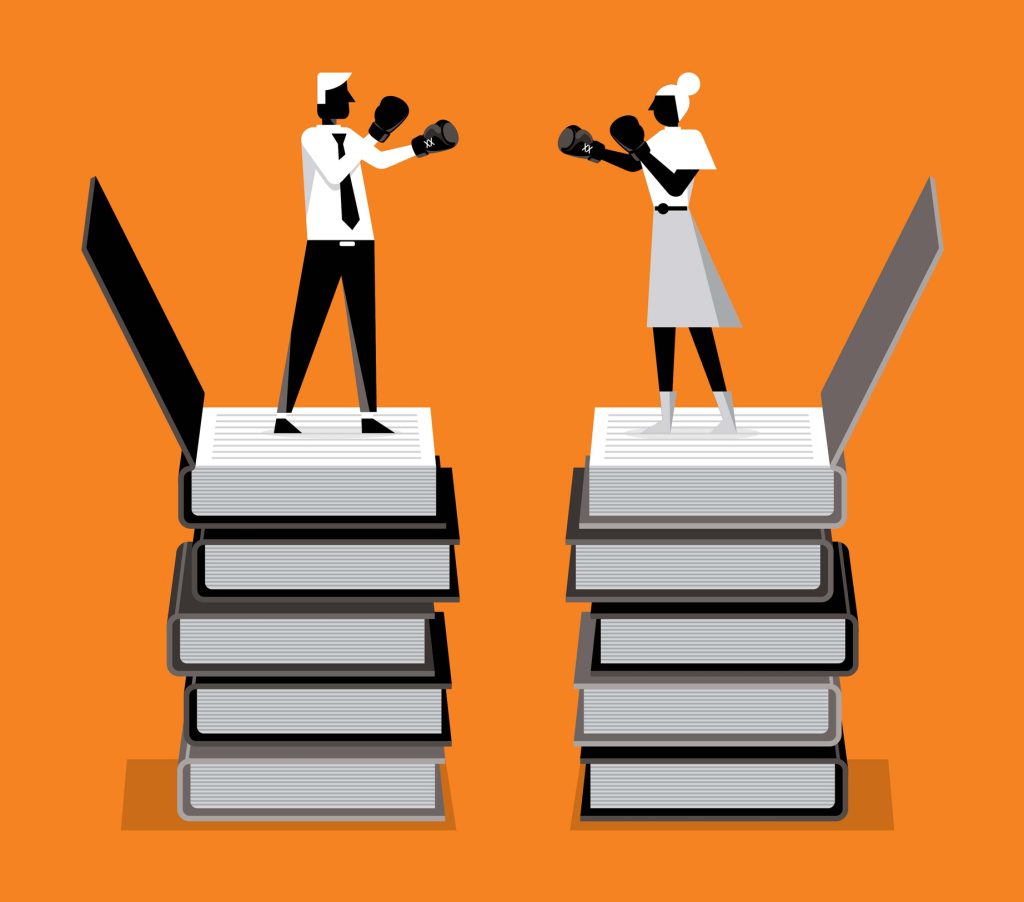
The rapid ascendance of generative artificial intelligence (AI) has caused the most significant jolt to the politics of the American copyright system since the arrival of the Internet. The use of vast numbers of copyrighted works to train the large language models (LLMs) that power generative AI chatbots and other tools has positioned copyright as the most significant regulatory regime for generative AI in the United States, with the threat of statutory damages, data and model destruction, and other remedies waiting in the wings of mounting copyright litigation against the AI industry.
In turn, fierce—and sometimes partisan—political battles about the disruptive and innovative potential of generative AI have crashed into copyright’s own fraught politics, which have long divided creators, rightsholders, users, and consumers in battles over the arrival of new technology. The arrival of AI has placed creators and rightsholders—some of whom have designs on deploying AI themselves—alongside anti-AI advocates and skeptics. They stand opposite the rapidly growing AI industry, which has aggressively argued that using copyrighted works to train models should be considered fair use. Meanwhile, user and community advocates that have long fought for a nuanced, balanced approach must now pick battles and choose sides carefully in a copyright law and policy environment suddenly centered on AI.
This conference will first look forward, exploring how generative AI’s arrival is redrawing the traditional lines of countervailing political support for the expansion and enforcement of copyright versus a robust conception of fair use. Beyond litigation, these issues have boiled over in Washington, with a brewing controversy over the leadership of the U.S. Copyright Office and its ongoing guidance on copyright’s application to AI. Next, this conference will look backward, examining what copyright’s AI-driven political realignments might portend for balanced copyright policy beyond AI, in areas ranging from transformative works, remix culture, consumer protection, repair, labor, and accessibility.
This event is open to all students, faculty, staff, and community members—no special expertise or technical background is necessary. If you’re curious about copyright and AI, who gets to participate in policymaking discussions, or what constitutes a fair use, we hope you’ll join us for some or all of the event!
Sessions
Check in and Breakfast
@ Wolf Law Building, Foyer and Boettcher Hall
Attendees are welcome to check-in and enjoy a continental breakfast buffet before the day’s programming gets underway.
Welcome
@ Wolf Law Building, Wittemyer Courtroom

Executive Director, Silicon Flatirons

Associate Professor of Law, University of Colorado Law School
Keynote

Richard M. Sherman Distinguished Professor of Law and Information, University of California, Berkeley
Break
AI and Copyright Politics

(Moderator)
Associate Professor of Law, University of Colorado Law School

Senior Copyright Counsel, Google

Deputy Features Editor, The Verge

Richard M. Sherman Distinguished Professor of Law and Information, University of California, Berkeley

SVP & Associate General Counsel, Law & Policy, Motion Picture Association, Inc.
Lunch
@ Wolf Law Building, Schaden Commons
Copyright Politics Beyond AI

(Moderator)
Director of the Schaden Experiential Learning Program, University of Colorado Law School

Legal Committee, Organization for Transformative Works and Associate Professor, Information Science, University of Colorado Boulder

Senior Policy Counsel, Public Knowledge

Professor and Graduate Director, American University School of Communication

Professor of Law, UCLA School of Law
Reception
@ Wolf Law Building, Foyer and Boettcher Hall